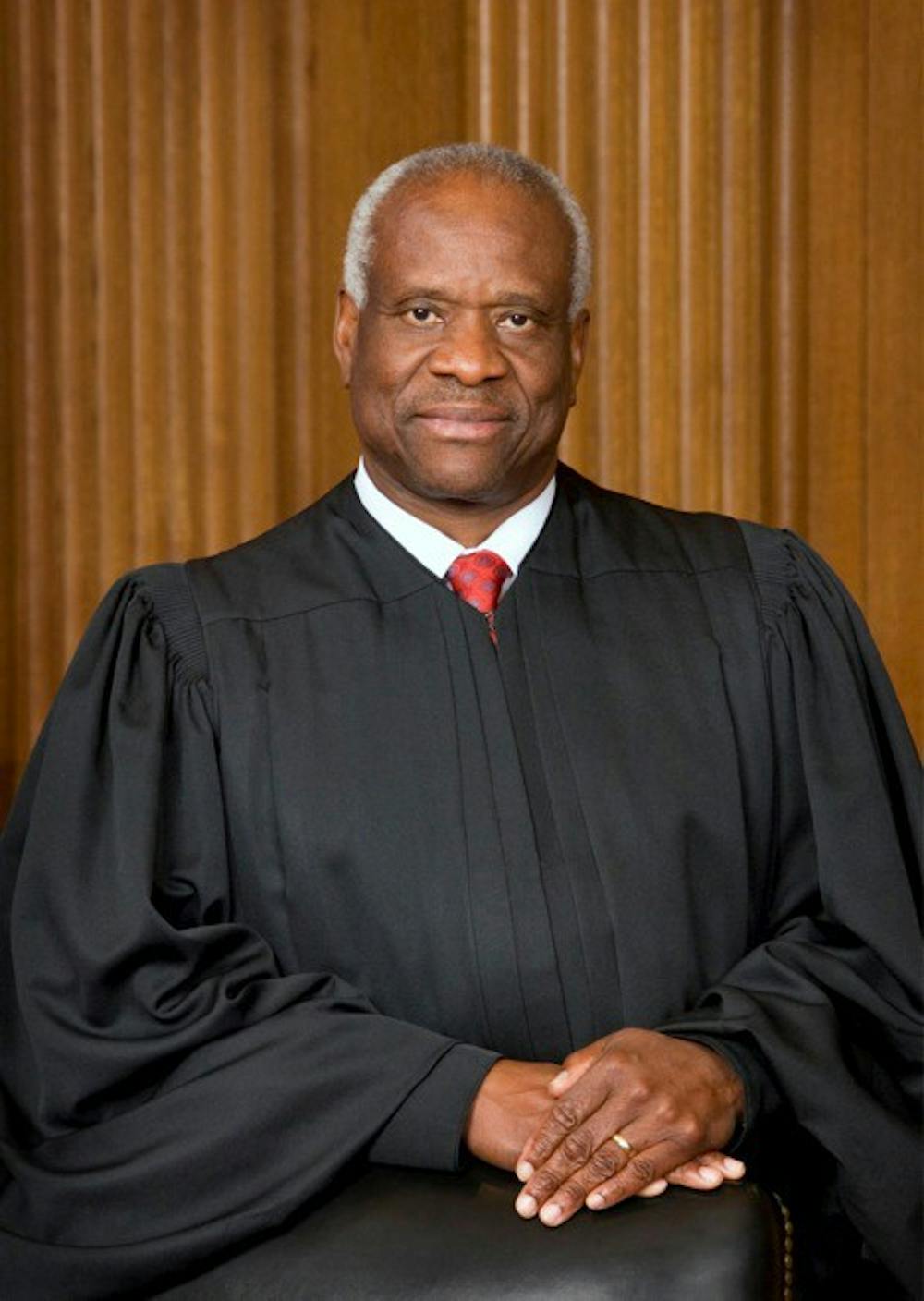A week from today, students will have the opportunity to hear from one of the most important people in the U.S. government as UP welcomes Supreme Court Justice Clarence Thomas to campus. While he’s here, Thomas will answer questions from political science professors Gary Malecha and William Curtis in the Chiles Center.
Of course, some people aren’t excited about Thomas’ visit to the University. He’s often considered the most conservative Supreme Court justice, having recently voted in favor of the Defense of Marriage Act and against the Voting Rights Act.
Although he is a prominent African-American leader, he is opposed to affirmative action and some other policies intending to bring about racial equality.
He was accused of sexually harassing Anita Hill, who worked for him at the U.S. Department of Education and the Economic Opportunity Commission in the 1980s.
And all of these points are worthy of conversation. None of them, however, should prevent students from taking the opportunity to learn from one of the most powerful men in the country. Students who disagree with Thomas - even those who find his views deeply offensive - still ought to go and hear him speak in the Chiles Center.
One of the most valuable things about being at a university is that important discussions are taking place all around us all the time. In engineering classes, we share innovative ideas to design better bridges and electronics. In English classes, we debate the importance of words. In core philosophy classes, we twist our minds into knots arguing about the nature of knowing and how to ethically treat each other.
All of this debate is healthy and vital to our learning. If students are to increase their knowledge, they must be exposed to viewpoints they find disagreeable, and they must be challenged to articulate their reasons for disagreeing.
So if students choose not to listen to Thomas on grounds of political disagreement, they’re missing out on educating themselves.
Some students will choose not to hear Thomas speak not because they disagree with him, but because they just don’t care about the Supreme Court. This, too, is a great fault. Students should not let apathy prevent them from hearing one of the most influential men in the nation.
Discussion and debate are important, and regardless of whether someone agrees or disagrees with Thomas, it is crucial for all Americans - and a duty of university students - to know what’s going on in the Court.
Whether you feel like protesting Thomas’ visit, can’t contain your excitement to see him in person or don’t see the importance of hearing a Supreme Court justice speak, just listen to him. Go hear him speak at the Chiles Center and challenge yourself to consider the validity of his ideas, whether or not you agree with him. UP has provided a great educational opportunity, and it would be a shame to miss it.








